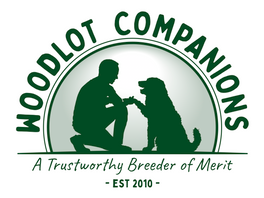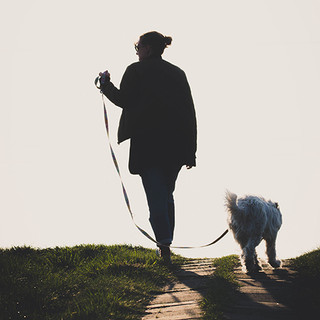The first 48 hours can be both stressful and joyful for you and your new puppy. With all of the big adjustments in their little lives, please don’t be surprised that your puppy may exhibit signs that seem odd or concerning to you. Rest assured the behaviors we outline in this blog during your first 2 days with your puppy are completely normal, and not all puppies will have these issues. You may find that your puppy only has one. Regardless it’s a good idea to read through these helpful tips prior to your first 48 hours with your puppy.
Why won’t my puppy poop?
Due to the stress of so much transition in their little lives, it is common for puppies to not need to go poop for several hours or days after their arrival. Some puppies bark when they are afraid but many internalize their fears during travel which have a direct affect on slowing down their digestive system. They can also be shy about pooping in a new environment because everything smells unfamiliar and intimidating. This hesitancy usually lasts less than 24 hours but we have had families report back that it took an extra day to get their new puppy to go. Please do not stress! If you are getting concerned about their first bowel movement, getting your new furry friend as relaxed as possible while building up their confidence is key!
How can I encourage my puppy to poop?
Petting your dog, gently rubbing on their ears, or even rubbing on their tummy helps them get into a relaxed state. Sit on the floor with your new puppy and bond with them to help them relax. Talk to them in a soft tone of voice and keep your energy levels low. You want to get them in a relaxed state to build trust and build a bond with you immediately.
Take your puppy out in the yard and walk around together. Being part of their new pack must be established- so walking out there with them as they sniff all the new smells in the yard is a great way for them to continue to build their confidence having their first B.M. You will not have to do this forever, but in the first couple weeks it’s important that you monitor your puppy’s poop consistency and keep an eye on them in case they find something to eat in the yard. The exercise of exploring around and running in the yard gets their digestive system back in high gear.
When to consult a vet
If your puppy has still not had a bowel movement after the first 48 hours it’s a good time to check in with your vet. If your puppy is exhibiting any other signs of distress such as pale gums, bloating, heavy breathing, or vomiting please consult your local veterinarian immediately!
Why does my puppy seem afraid to pee?
Most puppies will have no problem peeing upon arrival, though it’s not uncommon for them to suddenly feel bashful about where to go once they have had time to process all the new smells flooding their noses. Because canines noses are so much more sensitive to scent than ours, it can be overwhelming and intimidating smelling the territorial markings of other canines as well as other animals. Please consult a vet if your puppy hasn’t gone pee within 6 hours of coming home. If your puppy holds their pee for too long it can cause a Urinary Tract Infection and weaken a developing bladder.
Will my puppy puke on the ride home?
Puking is especially common if traveling by car for the first time. Many puppies will exhibit stress through puking, but usually goes away after the initial shock of the first car ride. Some will only puke once, others will puke the entire way home. Be sure to bring extra towels and puppy wipes to help them along! For puppies who puke every time they ride in the car, this is likely caused from motion sickness rather than stress. There is a prescription medication your veterinarian will prescribe when your dog becomes of age. Most pups will get acclimated to riding in a car with consistent positive experiences. Please take your puppy to the vet immediately if your puppy is weak, lethargic, has pale gums, or has diarrhea in combination with vomiting.
Why won’t my puppy eat?
You may notice that your puppy doesn’t want to eat or drink as soon as they get to their new forever home. This is common- especially in the first 12-24 hours. They will most likely start drinking water first, then decide to start eating once they have passed their first post-travel poo. To help entice your puppy to eat, we recommend using a product called Nutrivite. It is loaded with vitamins and nutrients and comes in an array of flavors that you can put onto your puppy’s food to help entice them to eat.
Why is my puppy sleeping all the time?
It is important that you transition your puppy to your own schedule as soon as they arrive. If you pick up your puppy from the airport, your pup may want to sleep a lot. It is important that you make your puppy stay up and play until it’s time to go to bed. Having a brief nap will be ok- but do not allow your puppy to sleep the rest of the day! He or she will wake up when you want to go to bed and want to play through the night. Although it’s tempting to let your puppy do what it wants after such a long travel day, your puppy needs to get into the rhythm of their new life without wreaking havoc on your already established schedule.
Why does my puppy seem sad?
Not every puppy will react the same to the biggest transition of their little lives! We love to believe that dog’s instinctively know when they are in their forever homes and feel the joy of living out their purpose! However, each puppy Is different and may need more time to ‘emotionally’ adjust to everything. Make sure you spend time with your puppy to reassure him or her of your love for them. Play with them. Walk with them out in the yard and establish a bond with them that helps them understand they have a very important purpose in their new pack. If your puppy seems overly lethargic, habitually depressed, or aggressive, please call your veterinarian immediately.
Other reminders!
How to register your puppy’s new microchip.
Your puppy’s microchip is useless unless it’s registered somewhere. Many states and counties will have their own pet microchip registrations when you pay for your dog license, however it’s a good idea to have your furry friend registered in another place as well in case you travel or your pup is found far from home. We love organizations that help reunite lost or stolen pets to their owners and that’s why we love the Found Animals Registry. It is completely free and a universal microchip registerer that allows you to register microchips from any microchip manufacturer.
Does my puppy have a health guarantee?
Each one of our puppies comes with a health guarantee. You can read out the details here if you haven’t done so already. At make that health guarantee valid, please make a puppy wellness check with your veterinarian within 72 hours of receiving your dog to clear them of any medical issues. If you have questions or your vet brings up a concern about your puppy’s health, please call Gladys immediately.



